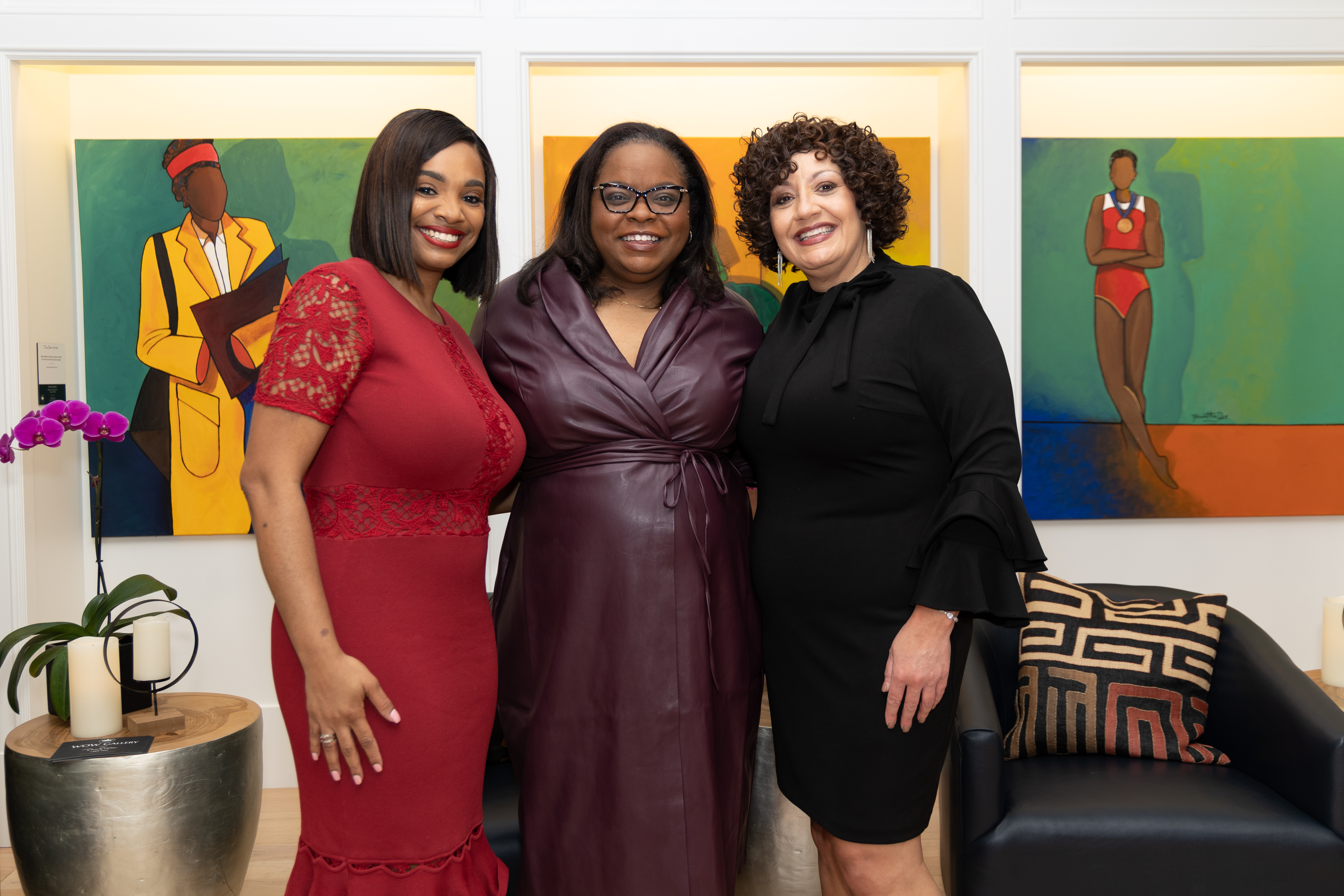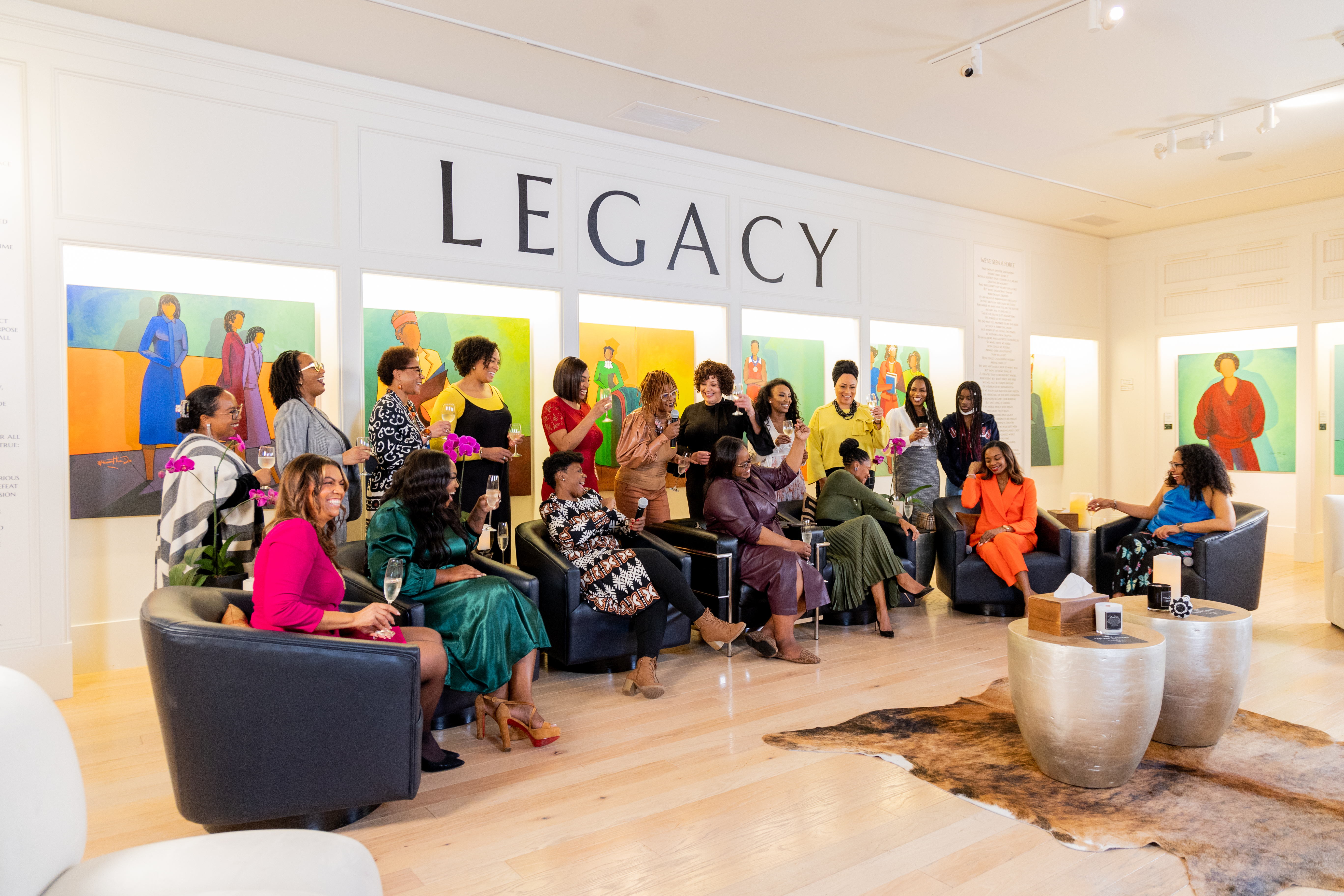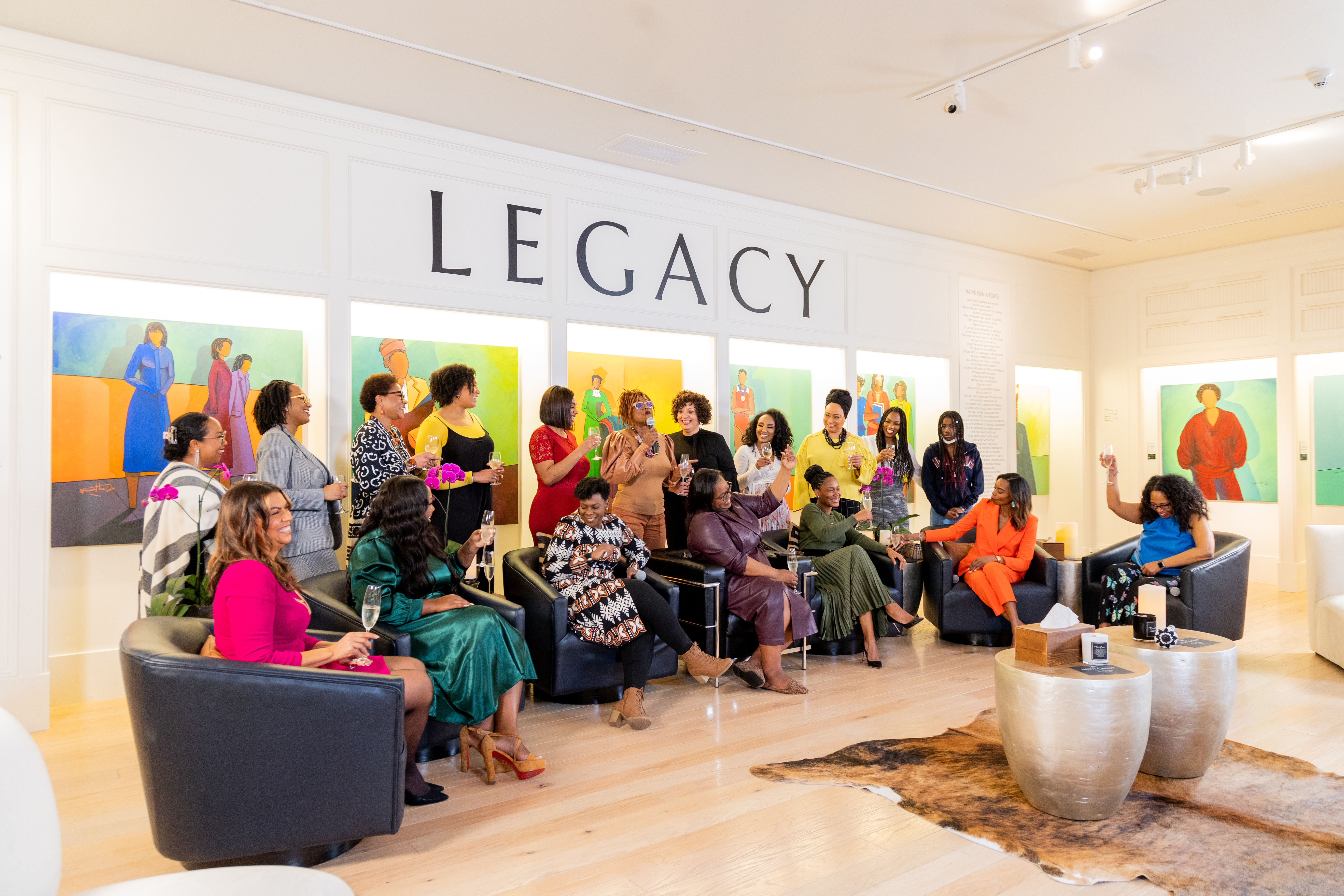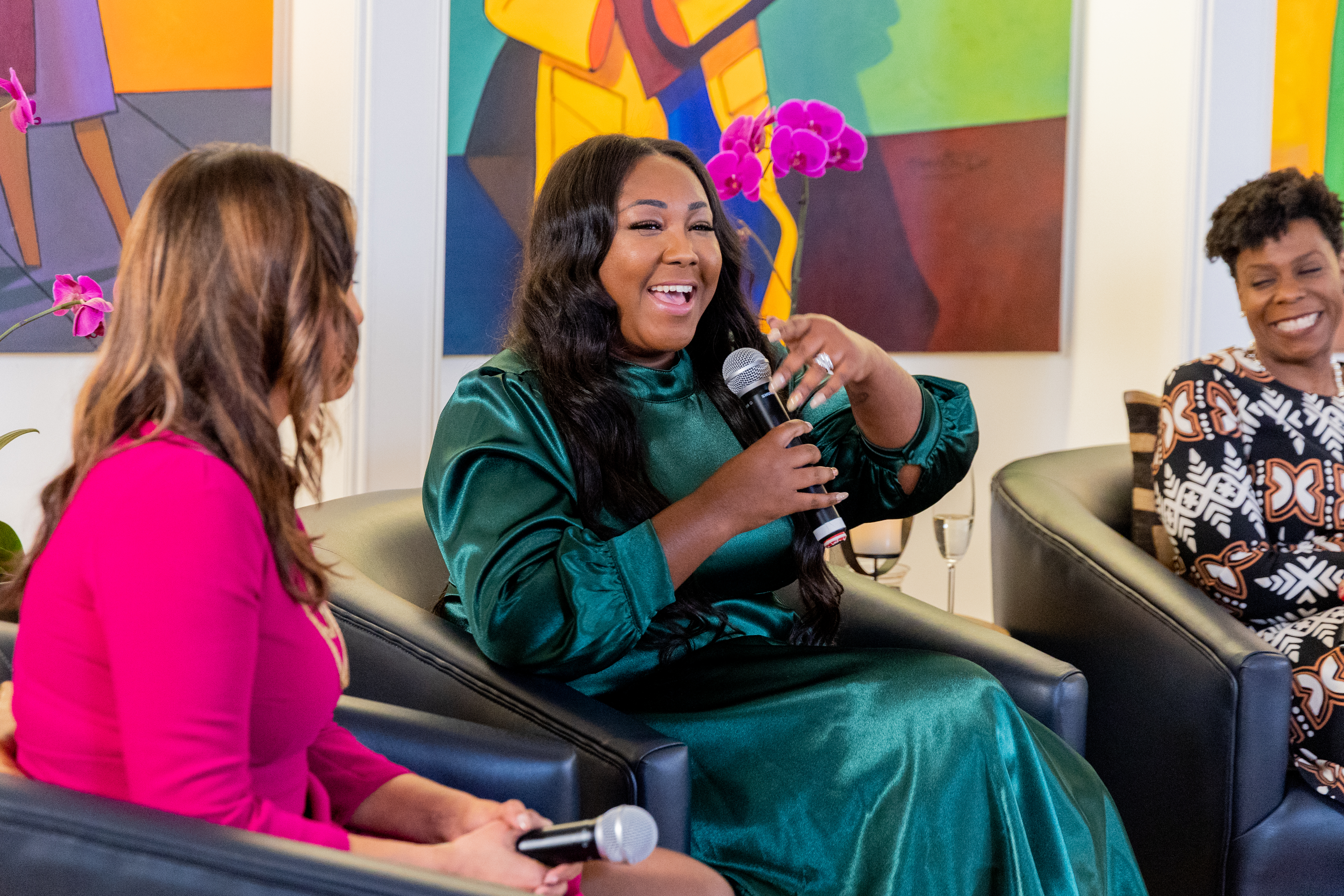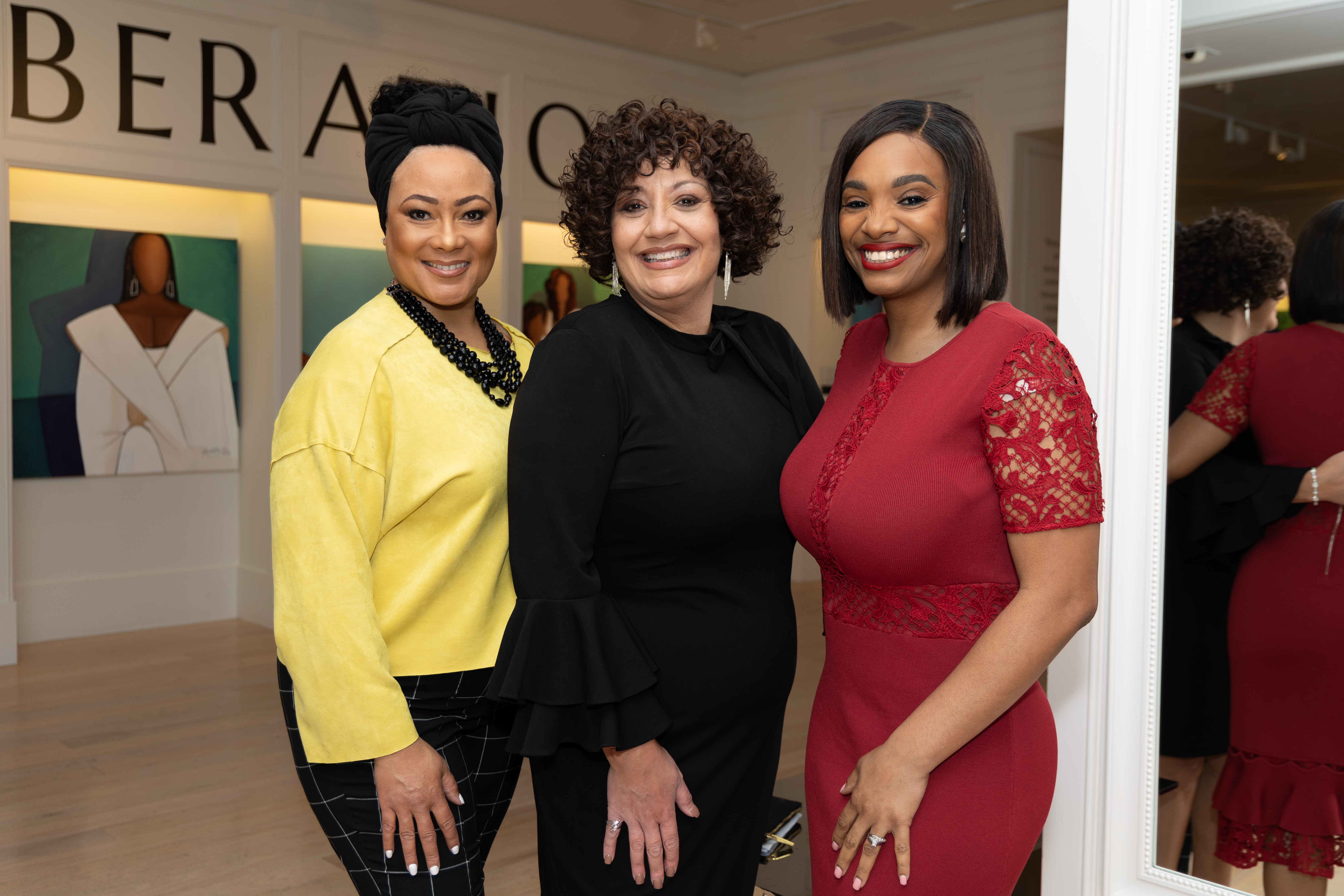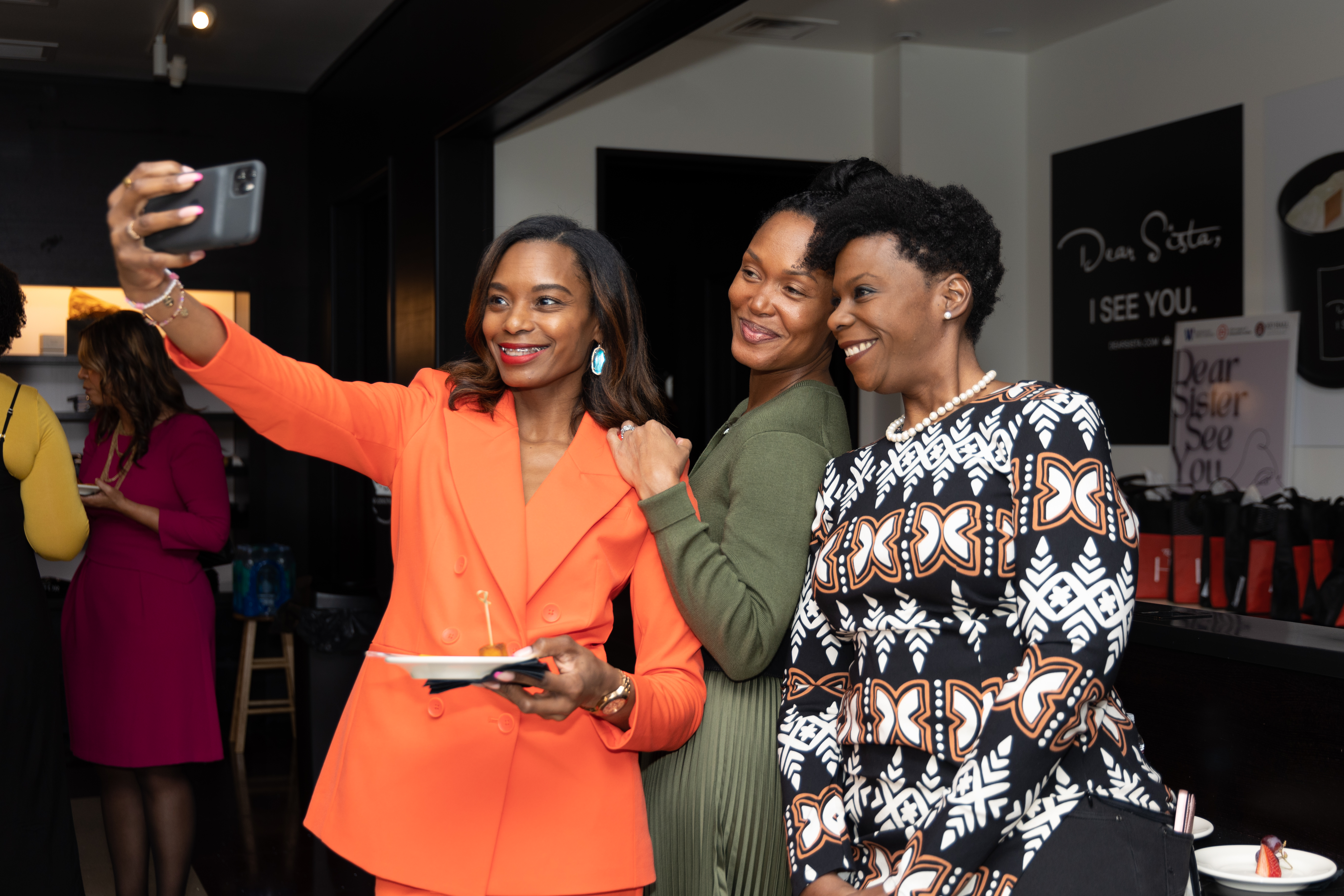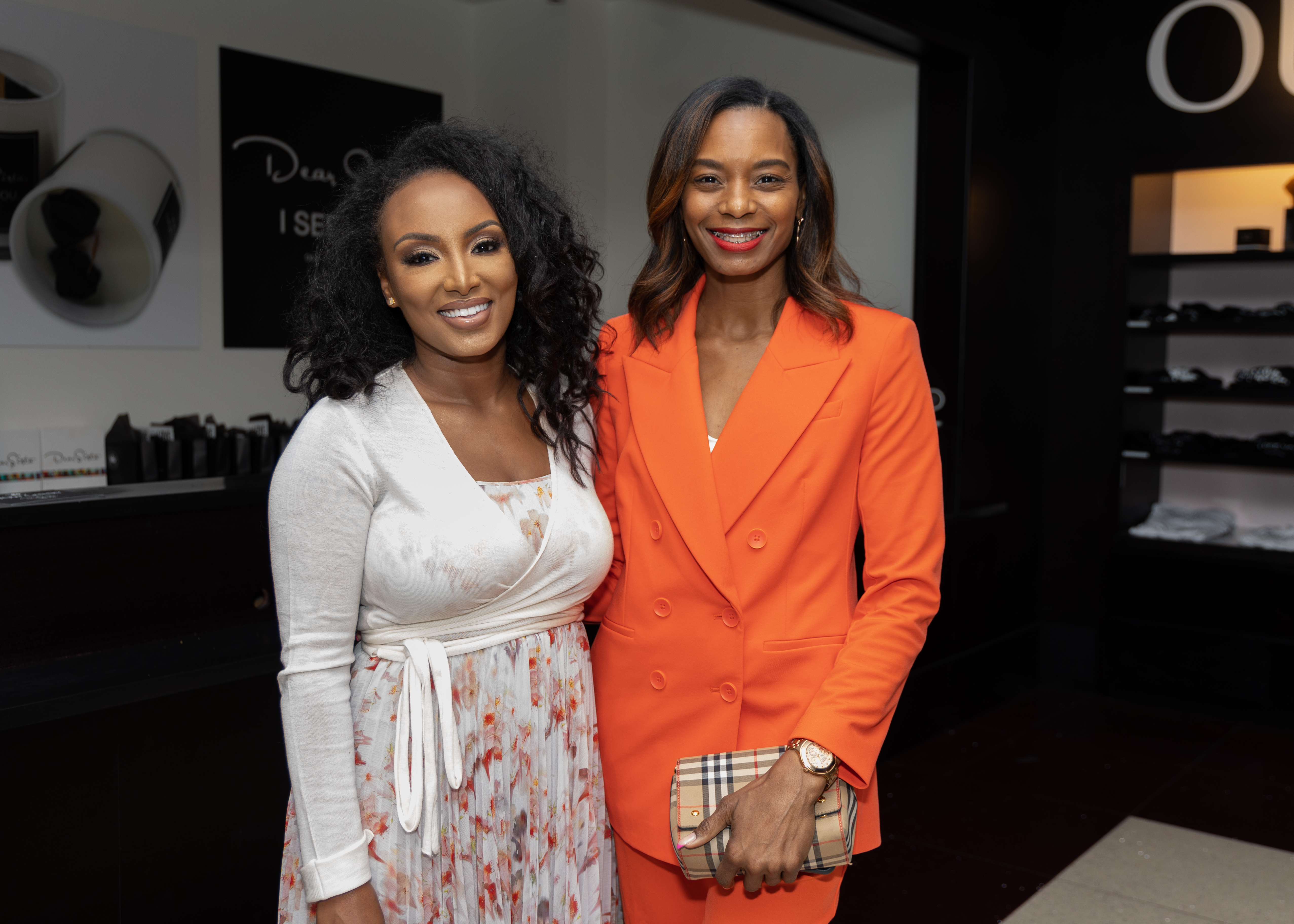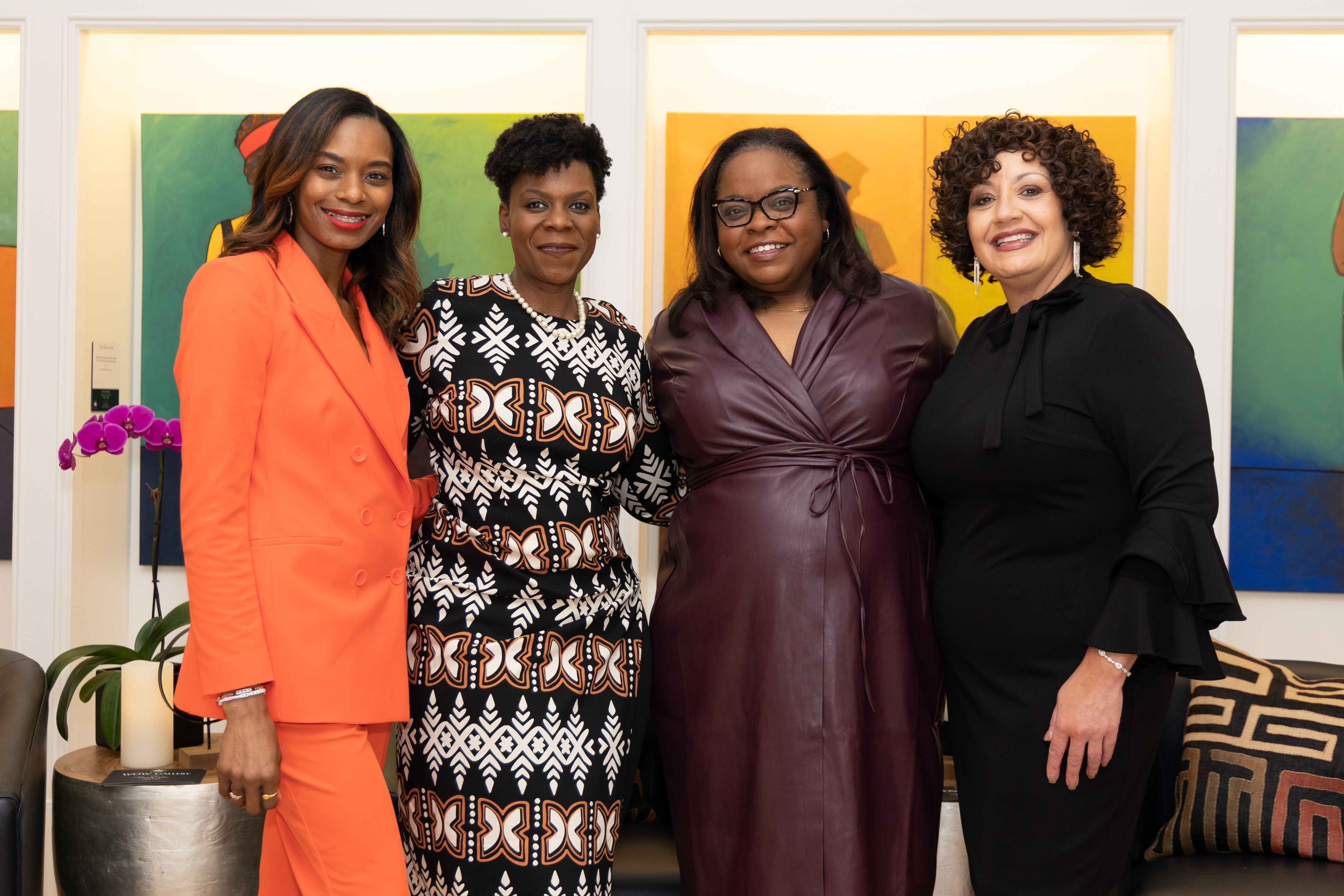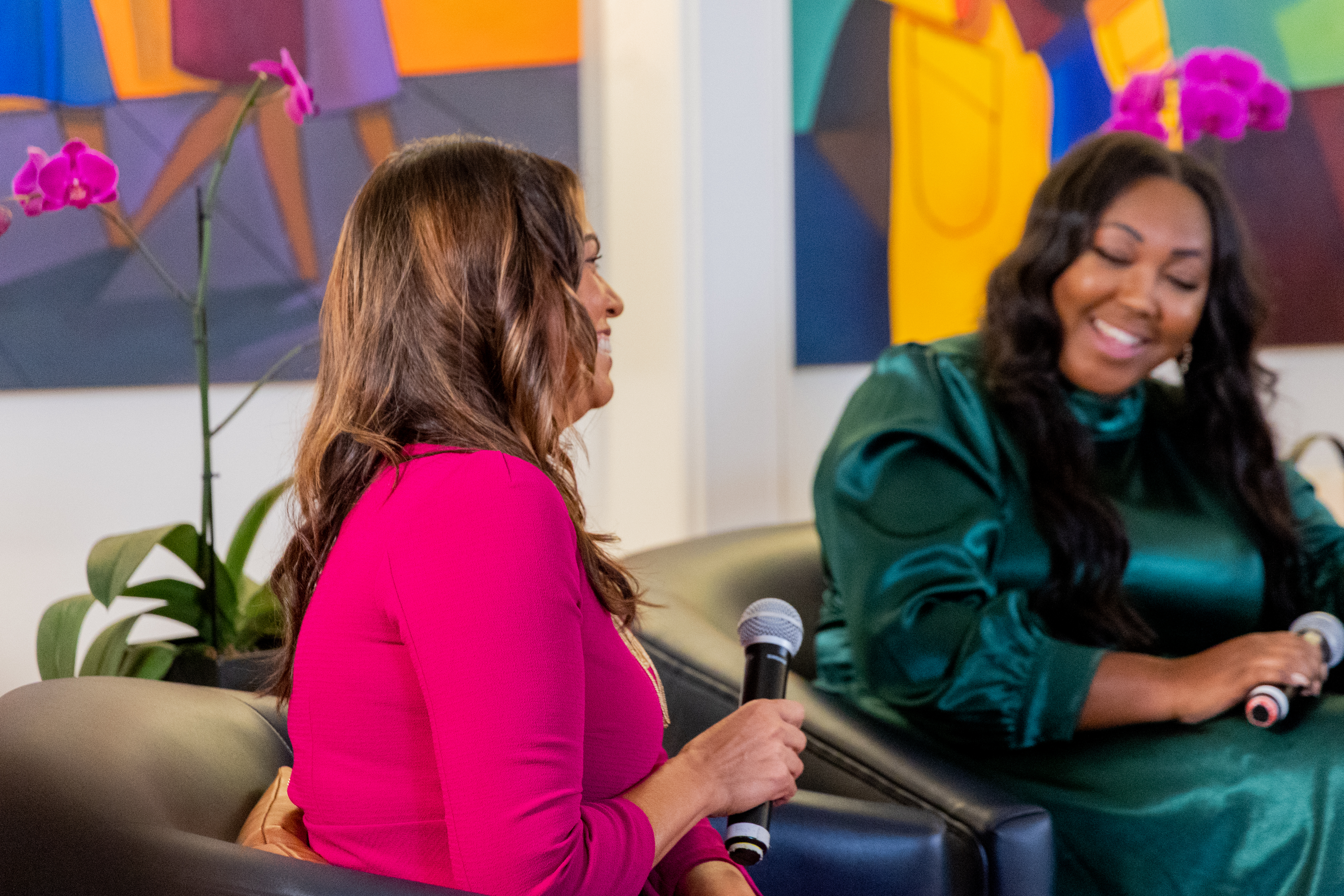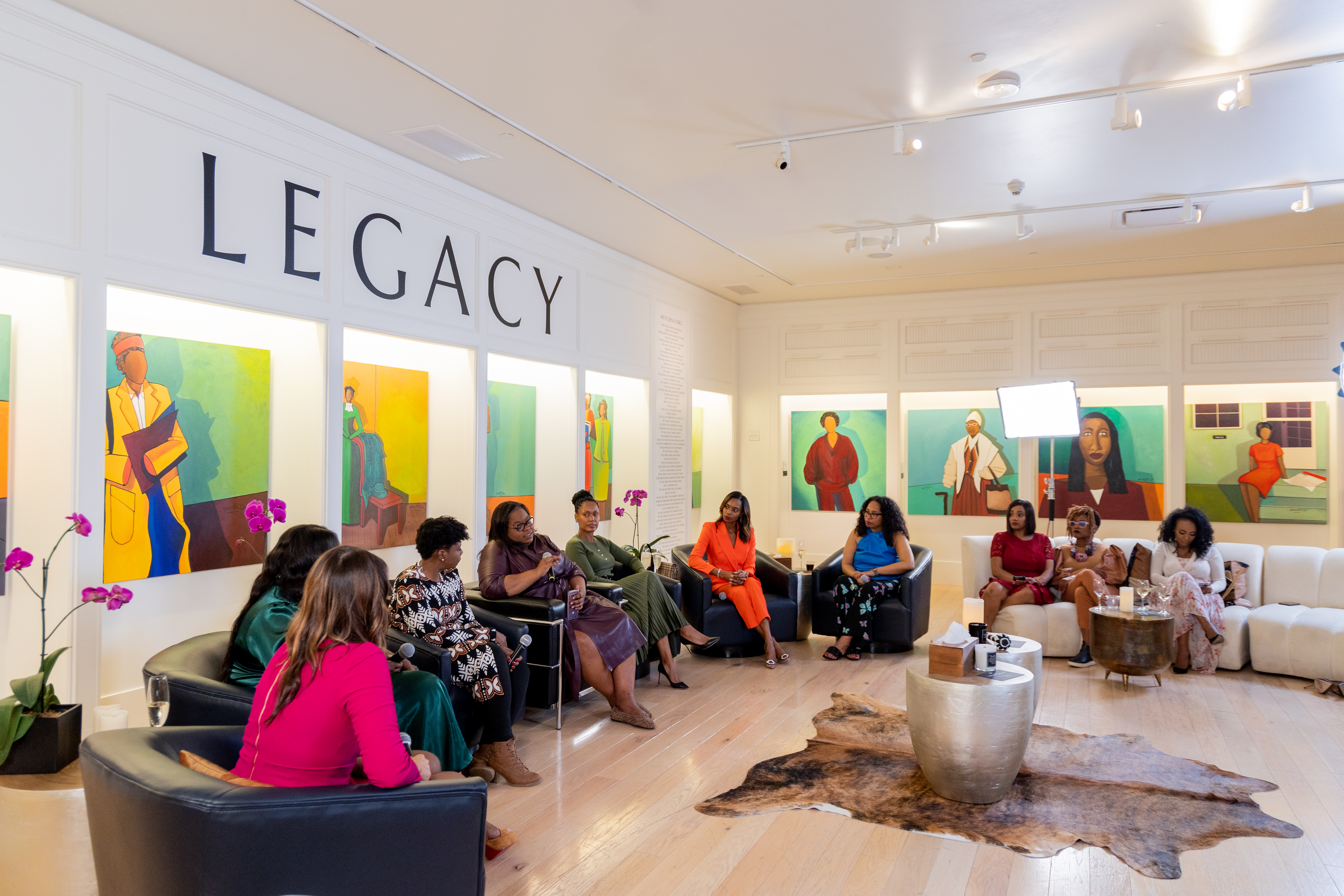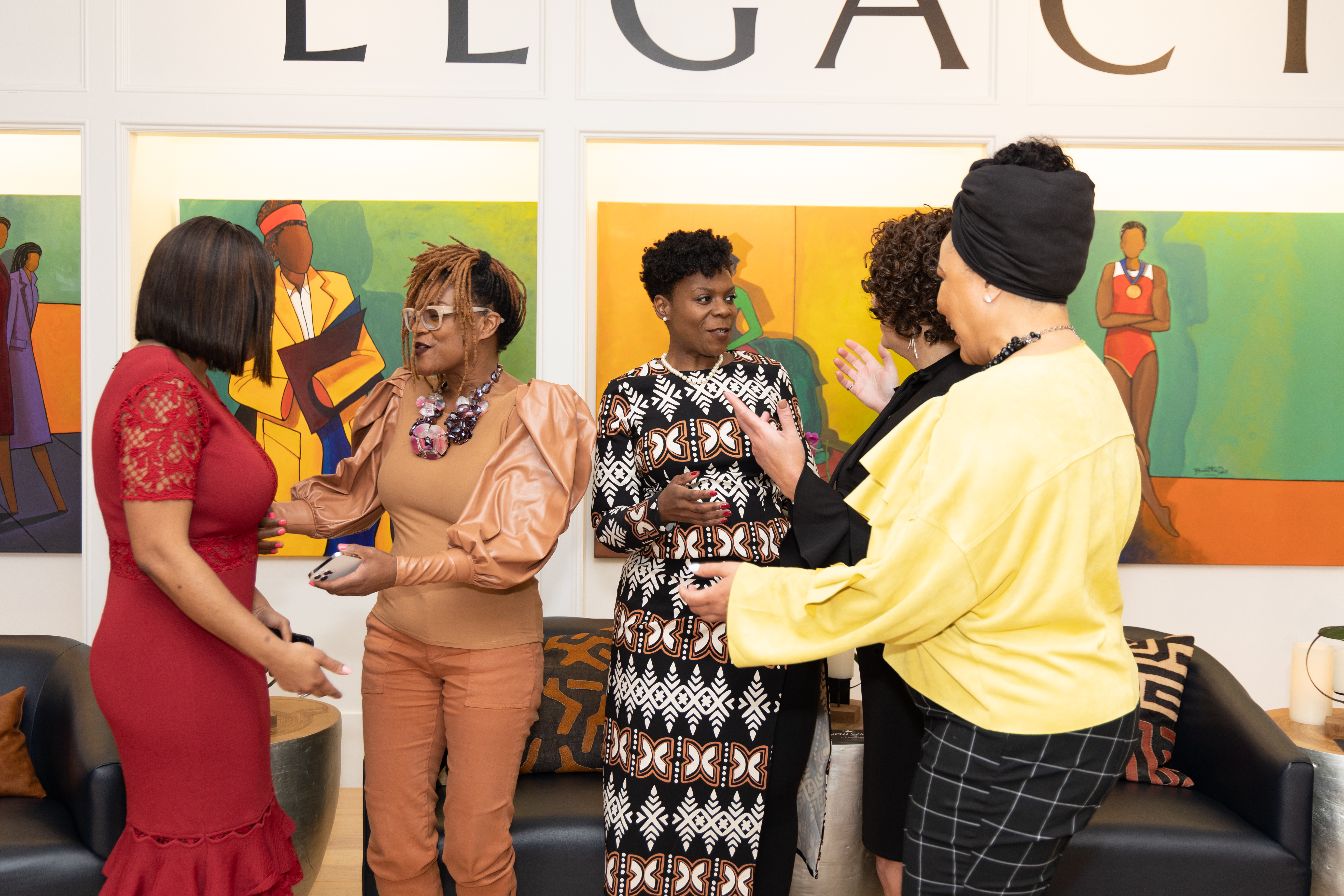Redefining the Strong Black Woman: A Sister Circle on Black Women's Mental Health
On Tuesday, March 22nd, 2022, a group of dynamic Black women leaders came together from across the region to hold three panel conversations around the topic of Black women’s mental health — a crucial conversation in the aftermath of COVID-19 and the racial reckoning that followed in 2020. Panelists shared their mental health journeys; discussed the need to destigmatize depression, mental health crises, and dismantle the trope of the Strong Black Woman; discussed the realities and impact of racial and gender-based trauma; and called for systemic and cultural changes necessary to normalize accessing support and to promote healing and holistic well-being.
As the sister circle unpacked the stigma, language, and intergenerational trauma held that prevented many from seeking support, the conversation turned to redefining strength. In the words of Angela Jones, J.D., the circle was able to reframe strength not as powering through, but as the ability to be vulnerable and to trust and show up for one another in community and solidarity, even in the face of health care systems that continue to fail Black women.
Women’s Commission Director Regina Malveaux also invited the circle to practice more radical vulnerability as a way of forming deeper connection and feeling less alone: “We struggle too. We may have worked hard and arrived at these places where we get to do important work that has impact, but we each had a journey before we got here. And it wasn’t always pretty. And it occassionally still isn’t.”
She called upon the leaders in the room — as ones holding positions of influence — to model transparency for daughters, mentees, and younger generations of women and normalize naming experience of mental health struggles in order to access help. She shared, “When I was younger, I thought I was alone in the depth of the darkness that I struggled with. Maybe had I known that my mentors had similar struggles, I would have reached out and I could have struggled less.”
Ashley McGirt, Founder of the WA Black Therapy Fund and leader in the movement for improved access to mental health for the Black community, agreed. She shared that her experience with depression drove her to seek knowledge and stories of others experiencing mental health, which ultimately led to a career. She said, “Ultimately we want to know that we’re not alone. I’m here in community with you because that’s how I was created.”
Over the course of the evening, guests echoed the call for sisterhood and community. Veronica Very emphasized the importance of showing up for one another, and called for recognition that being in community is a “necessary, medicinal, therapeutic pathway for healing.”
Tracie Anderson added: “It’s really important as strong Black women that we develop allies and sisterhood, because that is going to help when you can’t help yourself – to have someone who can see into your need. So ‘Dear Sister, I See You’ isn’t just a good slogan, it’s necessary for survival.”
“The fact that we are expected to be the Strong Black Woman doesn’t allow us to just be women,” she continued. “The strong Black woman – I don’t necessarily lean into that, because my DNA says I’m an original woman. Every aspect of who I am stands strong. You don’t need to put a label on me. I can be strong one day and weak the next, but at the end of the day I am still a woman, meaning I am the capacity of life for the entire universe. That’s what I must remember, and pull myself together when I am having to be my own advocate or my sister’s advocate.”
As Senator T’wina Nobles shared, self-advocating and self-care may mean prioritizing passions, holding boundaries, centering joy, and prioritizing rest. As Ashley McGirt said, “Black bodies were not allowed to rest for so long, and so rest is radical and healing.”
In terms of broader advocacy, leaders in the room called for more financial resources. In part, there is a dire need to provide financial resources to Black communities to access quality mental healthcare, to support Black practitioners of care, and to promote cultural competency in care — care that is often prohibitively expensive and grounded in a crisis model. At the same time, multiple leaders called upon systemic solutions to systemic problems: investment in social supports and infrastructure to lift communities out of the conditions putting them at greater risk of mental health crises.
In addition, Ashley McGirt invited the room to wonder how mental health struggles faced by Black women — particularly experiences such as racial trauma — could be affirmed and healed without the penalties of pathology and outside of systems of mental healthcare designed by and for white predominantly white men.
She invited the circle to think expansively of healing practices rooted in indigeneity and community, where care and existing evidence-based practice could be reimagined and trans-created to be culturally responsive for Black communities.
In the words of Veronica Very, “I want us to remember to remember us. We have inside of us everything we need for healing… The most powerful thing that I want to take away from this circle is that we have to remember us. We have to remember to connect with us again, remember us again, so we can heal us again.”
Andrea Caupain Sanderson said, “I’m going to build on what our sister Angela (Jones) says at the Black Future Co-op Fund: 'how do we work everyday to be a good ancestor?' As we reframe the mental health sector and what it means in our lives, we have to think about it in terms of living into the justice that our ancestors fought for. Our ancestors could not experience their pain. They just had to grin and bear it… They could not talk about it like we do today, much less move to a point where they could heal it. But they sacrificed so that we could be here today and do this.”
Present for this sister circle were esteemed guests:
- Michelle Merriweather — CEO of Urban League of Metropolitan Seattle, Co-architect of Black Future Co-op Fund, & WSWC Chair
- Regina Malveaux — Director of Washington State Women’s Commission
- Kela Hall — CEO of KD Hall Foundation
- Veronica Very — Founder of Wonder of Women International & WOW Gallery
- Zyna Bakari — Public Health Initiatives Manager at Urban League of Metropolitan Seattle
- Ashley McGirt — Clinical Therapist & Founder of WA Therapy Fund Foundation
- Senator T’wina Nobles — CEO and President of Urban League of Tacoma & Co-architect of Black Future Co-op Fund
- Representative Jamila Taylor — Representing the 30th Legislative District & Chair of Legislative Black Caucus
- Angela Jones — Director of the Washington State Initiative (WSI) for the Bill & Melinda Gates Foundation & Co-architect of Black Future Co-op Fund
- Anna Franklin — Director of Diversity, Equity and Inclusion at Providence & WSWC Commissioner
- Andrea Caupain Sanderson — CEO of Byrd Barr Place & Co-architect of Black Future Co-op Fund
- Loria Yeadon — CEO of YMCA of Greater Seattle
- Shanell Powell — Business Program Manager at Microsoft, WOW Gallery Board Member, & WSWC Fellow
- Tracie Anderson — The Peri Maven Powered by Tracie Anderson
- Tanisha Davis — Clinical Social Worker
- Mizan Howard — The Black Wall Street Initiative
- Zenovia Harris — CEO of Kent Chamber of Commerce & DEI Consultant
The Women's Commission would like to thank our partners at the Urban League of Metropolitan Seattle and the KD Hall Foundation for planning and co-hosting this beautiful evening and transformative conversations, and to Group Health for co-sponsoring this event. Thank you also to Veronica Very for allowing us to hold the conversation in the WOW Gallery's luminous space.
And finally, thank you to the team who worked behind the scenes to make the evening possible: to Carlos Imani and his team at The Elite Collective for once again beautifully producing and capturing the sister circle, and to Erica Daniels of Emazing Photography for capturing so many moments of joy and connection.
As the Women's Commission moves forward in its work to address systemic inequities in health systems, we are thankful for this community of leaders, practitioners, and powerful women at the forefront of shifting the narrative and transforming systems of care to better support the mental health and liberation of Black women.
Details to follow on the release and distribution of the film capturing the event.
Mental Health Resources for Black Women
The following mental health resources are free or low-cost and designed to support Black women's mental health.
- WA Black Therapy Fund Foundation: The mission of the Therapy Fund Foundation, founded by Ashley McGirt, is to alleviate the burden of cost and burden of discount to both Black clients and the providers who serve them, by granting free therapeutic services to those within the Black community who are in need, and suffering from racial trauma, anxiety, depression, and other ailments due to systemic oppression, economic sufferings, and unaddressed intergenerational trauma.
- Therapy for Black Girls: Therapy for Black Girls offers a directory of therapists and hosts a podcast. The podcast centers the experiences of and issues faced by Black women, including mental health and self-care.
- Liberate Mediation: An app is created for and by Black and Indigenous people of color (BIPOC). The app offers meditations and spiritual/philosophical talks led by BIPOC mental health practitioners.
- Black Female Therapist Directory: A comprehensive online directory of Black women therapists in the United States. Notations indicate whether therapists are accepting new clients, which insurances are accepted, and/or whether therapists offer sliding-scale payments.
- Ourselves Black: An online and print magazine dedicated to Black mental health. They offer a mental health directory, podcast, and resources for protecting and improving your mental health.
- Sista Afya Community Mental Wellness: Sista Afya offers low-cost therapy and support groups, and free resources focused on identifying mental health symptoms and strategies to improve your mental health.

